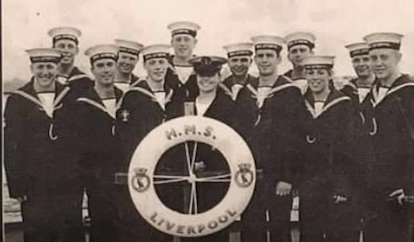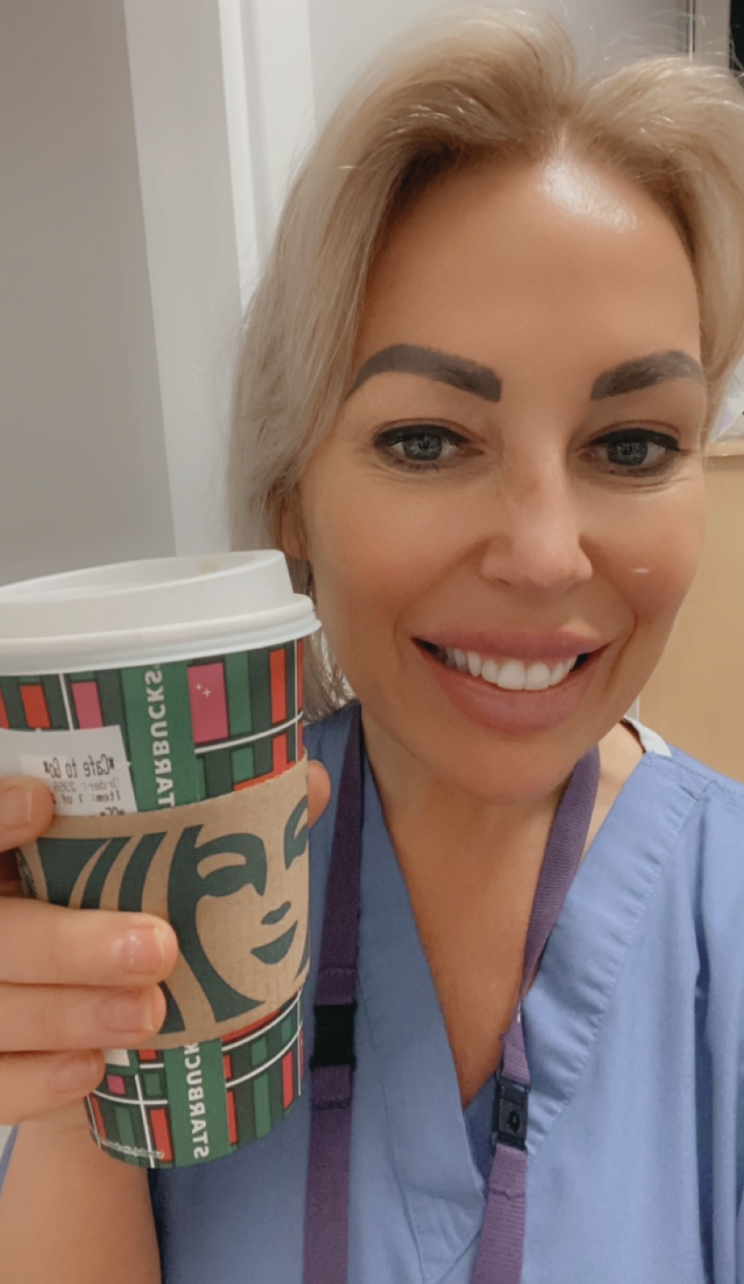Tell us a bit about yourself
My name is Terri-Ann. I live in Liverpool, and I’ve been a qualified nurse for 10 years. I’ve worked in the health industry for over 20 years, and I’ve worked full-time as an agency NHS nurse for the past 2 years.
How did you get into health care work?
Before I became a nurse, I was in the Navy and then worked as a HCA before finally becoming a nurse.
In the armed forces, I was a weapons engineer. One day, whilst we were on tour in Greece, there was a ferry disaster and mass casualty. Over 100 people died that day. I remember picking bodies off the water, and we found a few survivors. It was a very traumatic experience, but it was during this experience that I realised I liked the feeling of helping people in a hands-on medical way and wanted to do more.
I then became an HCA and did my NVQs while working in a care home.
My first experience in an emergency setting was with an emergency response team in a health centre. We were a crisis intervention team for when people were discharged from the hospital without a care package, we stepped in to provide HCA support. I did this for about 6 years, and it was great.
After working with nurses in my HCA role, I decided to go to university and become one. First, I did my access to nursing course. Then, when my son was 18 months old, I started my nursing degree. I went on to get experience in post-op, emergency, community and palliative care nursing.

Why did you choose to specialise in emergency department nursing?
The emergency department appealed to me as I’d always dipped my toe in emergency medicine. I love variety, have a lot of experience, and enjoy using my skills to adapt to new challenges.
Why did you move to agency nursing?
I decided to move away from permanent ward roles and move to agency nursing because I love the flexibility of agency nursing, the new experiences it offers, and the opportunity to meet new people every day.
What makes an effective emergency department nurse?
To work in A&E, you have to be energetic—it’s sink or swim. You can’t hide. Be efficient and effective.
There are lots of different skills you need to have to ensure you keep patients safe. One of the key things is knowing signs to look out for that flag an issue, e.g. sepsis. Plus, what tests to take depending on those symptoms.
One critical skill I think you need is strong communication skills with patients. Many patients’ frustration comes from a lack of communication while waiting. I try to overcommunicate, as it reassures patients and removes the frustration.
You also need to be a very confident communicator within the team and know when to escalate an issue. Plus, you need to have bags of energy to get you through a shift!

What does a typical week look like as an emergency department nurse?
This is an example from the other day: I go in and look where I am allocated, e.g. majors, hub, low or high care, resuscitation, or early assessment unit. I love that you don’t know what you’re going to get—for me, it’s like a box of chocolates!
The other day, I was in majors, so the first thing I did was get a handover. It’s usually relatively calm initially, but anything can happen on shift. There are 6 beds in majors, but there can also be 3 patients squeezed into the middle, so you can end up with 10 beds to manage.
Some patients might be taken off to other areas as they are very unwell. This means ward beds become available, so part of the job is to do paperwork, do the handover and get a new patient to the bed. We rarely have an empty bed for more than minutes.
Naturally, I’ll also be administering medications and doing observations during my shift. I might also have some patients coming in from nursing homes. So, they will likely need help with things like going to the toilet, moving, etc. For their dignity, we support this and carry out our nursing tasks. Sometimes, patients can also present with mental health issues, which can be challenging to manage.
It can be stressful and is always fast-paced. You do not stop until you get a break.
Why do you love working in the emergency department?
I work well under pressure and find it an exciting job. The day goes quickly, and you feel like you’ve made a difference to a lot of people’s lives, which is incredibly rewarding: You are the person who acted quickly, made a difference, and often saved a life. It’s also an intelligent job—you use your brain, interpret results, and work quickly.
What is one of your favourite nursing memories?
I always work New Year’s Eve, and we had a gentleman admitted into A&E with terminal cancer. He was very unwell. He said, “Do you know what song I love – auld lang syne?”. So, just before the stroke of midnight, we put it up on the speakers, and then the other staff and I all linked arms and hands around his bed and sang it to him. At that moment, he looked so happy and felt loved. It was so sad as he died the next day, but in his last moments, we made his wish come true. Wow, I thought, is there a better way to bring in the New Year?
Can you share any tips for nurses new to the emergency department?
Never ever feel like you can’t say “I don’t know”. A safe nurse will always say I don’t know and then ask questions. You should feel confident in both what you do know and what you don’t know.
Any tips for nurses considering agency nursing?
I’ve learnt that there are peaks and troughs. For example, agency work tends to get cut in April due to the financial year. But you can’t panic in the troughs. A good strategy is to have more than one agency with backup options in case your core agency can’t meet your needs.
Sometimes, I know I have to be flexible and take shifts at a distance, but I keep in mind that it’s not forever.
You also have to accept that permanent roles are a different world. You have to work the system, but on the flip side, you don’t have the restrictions of a permanent role.
Why did you join Florence?
My consultant, Jake. He is amazing. From my first conversation with him, I thought wow! He is efficient and amazing at building relationships. All my nurse friends also moved to work with Jake, as he’s such a fantastic consultant. I’m impressed with what the wider Florence team is doing with the app and their approach to nurses, too – it seems like Florence is going places.
You might also be interested in:
– Meet Florence star award winner, NHS nurse, Iola
– New! Submit NHS timesheets directly to the app